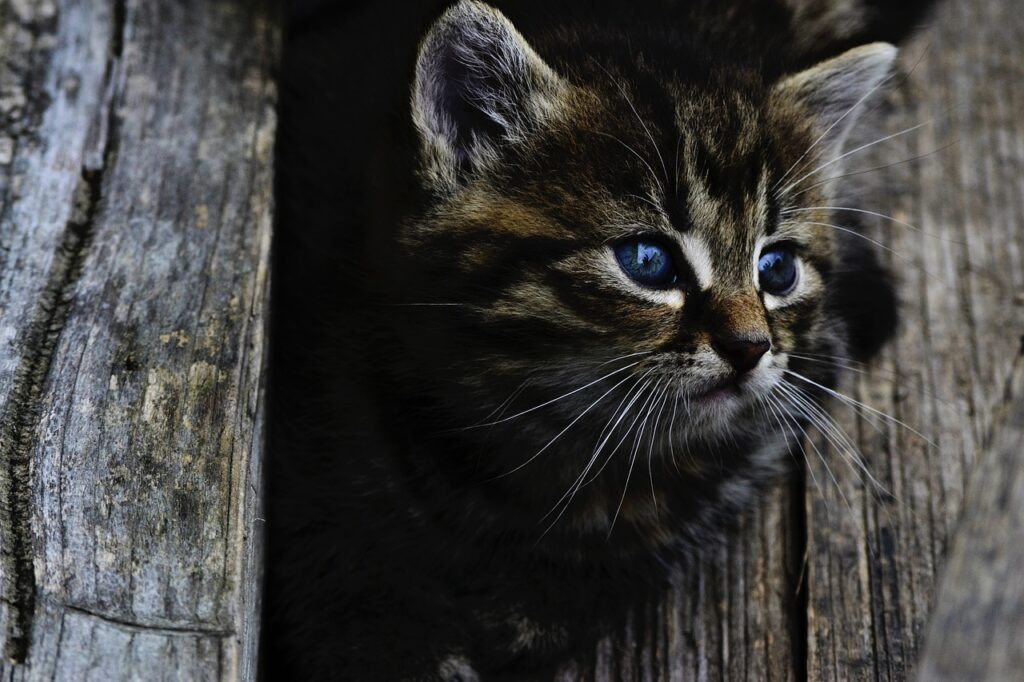Can Cats Eat Sausage? – No, They can’t
Cats are often curious about the food their humans eat, and you may wonder if sausage is safe for your feline friend. The clear answer is no, cats should not eat sausage. Sausages are typically high in salt and fat, which are not suitable for cats’ delicate digestive systems. In addition, many sausages contain seasonings like garlic and onion powder, which are toxic to cats. It’s crucial to stick to cat-friendly foods to ensure your pet’s health and well-being.
Can Kittens Eat Sausage?
The answer here is also a firm no. Kittens have even more sensitive digestive systems than adult cats, and their nutritional needs are different too. Giving sausage to a kitten can cause stomach upset and potentially lead to more serious health issues. It’s best to provide kittens with a diet specifically formulated for their growth and development.
Things to consider when feeding sausage to kittens?
When it comes to feeding kittens, it’s essential to avoid sausage altogether. Their food should be high in protein but not from sources that are processed and seasoned like sausage. It’s also vital to avoid foods that can cause choking hazards or have small bones that kittens could choke on.
Nutritional Benefits of Sausage for Cats – Why Sausage is NOT good for Cats
High Sodium Content
The sodium content in sausage is far above what is safe for cats, which can lead to sodium ion poisoning. Their bodies are not designed to handle such high levels of salt, and it can result in serious health issues.
Excessive Fat
High-fat foods like sausage can lead to obesity and pancreatitis in cats. Their diet should consist of lean proteins and should not include fatty products.
Garlic and Onion Toxicity
These common sausage ingredients are toxic to cats and can cause hemolytic anemia, a dangerous condition where red blood cells are destroyed faster than they can be made.
Risk of Additives
Processed meats include various additives and chemicals that are unhealthy for your cat, including preservatives like nitrates, which can be carcinogenic.
Choking Hazards
Sausage pieces can be a choking risk for cats, particularly small kittens. Avoiding such food items is best to prevent such accidents from occurring.
Potential Allergies: Can Cats Be Allergic to Sausage?
While specific allergies to sausage are not common in cats, the ingredients within can certainly cause adverse reactions. These include allergies to preservatives and fillers often found in processed meats.
Symptoms of Sausage Allergies in Cats
- Skin irritations: Spotting this involves observing any unusual itching, redness, or swellings on your cat’s skin.
- Gastrointestinal upset: Watch for symptoms like vomiting or diarrhea — clear signs that something is not agreeing with your cat’s digestive system.
- Respiratory issues: If your cat starts wheezing or seems to struggle with breathing after eating sausage, it could be an allergic reaction.
What to Do If Your Cat Shows Symptoms?
- Stop feeding sausage: The first step is always to eliminate the suspected allergen from your cat’s diet.
- Veterinary care: Consult a vet immediately to get a professional diagnosis and treatment.
- Dietary adjustments: Follow vet advice to adjust your cat’s diet to one that is safe and healthy.
Recommended Amount: How Much Sausage Can a Cat Consume?
Given the potential health risks, sausage is not recommended as a part of a cat’s diet. Hence, the right amount to feed a cat would be none.
Things to Consider When Feeding Sausage to Cats
If for any reason sausage is to be fed to your cat, it should only be in a tiny amount, as a rare occurrence, with careful removal of all toxic seasonings, and even better, it should be avoided altogether.
How to Feed Sausage to Cats: A Quick Guide
Although sausage is not recommended for cats, as a responsible cat owner, it’s more beneficial for you to know how to feed healthy and safe alternatives to your beloved pet.
Healthy Cat Treat Alternatives to Sausage
If you want to give your cat a meaty treat, opt for plain cooked chicken, turkey, or lean beef in small amounts. Always ensure it’s cooked without harmful seasonings or additives.
Tasty Homemade Cat Treat
For a homemade treat, blend cooked fish like salmon or tuna with some cat-safe veggies. Make little patties and bake them for a tasty, nutritious snack.
Commercial Cat Treats
Commercially available cat treats that are specifically designed for a cat’s dietary needs make a good occasional treat alternative. Look for those with a high protein content and minimal additives.
Conclusion
Feeding sausage to cats is not recommended due to its high salt content, fat, and potential harmful additives and seasonings. Always prioritize your cat’s health by choosing treats and foods that are safe and nutritious for them. Remember to consult with your veterinarian for the best dietary advice for your feline friend.



